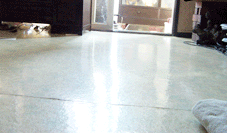|
|
此文章由 viviancn 原创或转贴,不代表本站立场和观点,版权归 oursteps.com.au 和作者 viviancn 所有!转贴必须注明作者、出处和本声明,并保持内容完整
http://72hours.org
Go-bag
A component of your disaster kit is your Go-bag. Put the following items together in a backpack or another easy to carry container in case you must evacuate quickly. Prepare one Go-bag for each family member and make sure each has an I.D. tag. You may not be at home when an emergency strikes so keep some additional supplies in your car and at work, considering what you would need for your immediate safety.
Flashlight
Radio – battery operated
Batteries
Whistle
Dust mask
Pocket knife
Emergency cash in small denominations and quarters for phone calls
Sturdy shoes, a change of clothes, and a warm hat
Local map
Some water and food
Permanent marker, paper and tape
Photos of family members and pets for re-identification purposes
List of emergency point-of -contact phone numbers
List of allergies to any drug (especially antibiotics) or food
Copy of health insurance and identification cards
Extra prescription eye glasses, hearing aid or other vital personal items
Prescription medications and first aid supplies
Toothbrush and toothpaste
Extra keys to your house and vehicle
Any special-needs items for children, seniors or people with disabilities. Don’t forget to make a Go-bag for your pets.
After a major disaster the usual services we take for granted, such as running water, refrigeration, and telephones, may be unavailable. Experts recommend that you should be prepared to be self-sufficient for at least three days. Store your household disaster kit in an easily accessible location. Put contents in a large, watertight container (e.g. a large plastic garbage can with a lid and wheels) that you can move easily.
Your basic emergency kit should include:
Water – one gallon per person per day
Food – ready to eat or requiring minimal water
Manual can opener and other cooking supplies
Plates, utensils and other feeding supplies
First Aid kit & instructions
A copy of important documents & phone numbers
Warm clothes and rain gear for each family member.
Heavy work gloves
Disposable camera
Unscented liquid household bleach and an eyedropper for water purification
Personal hygiene items including toilet paper, feminine supplies, hand sanitizer and soap
Plastic sheeting, duct tape and utility knife for covering broken windows
Tools such as a crowbar, hammer & nails, staple gun, adjustable wrench and bungee cords.
Blanket or sleeping bag
Large heavy duty plastic bags and a plastic bucket for waste and sanitation
Any special-needs items for children, seniors or people with disabilities. Don’t forget water and supplies for your pets. |
|
 【先后两次抹茶瑞士卷。。。真心好吃啊。。。127#128#做法和图解补齐。。。】 (2011-10-27) 航迹云
【先后两次抹茶瑞士卷。。。真心好吃啊。。。127#128#做法和图解补齐。。。】 (2011-10-27) 航迹云  面子产品大交流之大头心得 (2007-3-12) datou2z
面子产品大交流之大头心得 (2007-3-12) datou2z  征文活动:80后,你们也行的(特针对80后会计移民) - LG部分完整版33楼 (2008-4-29) loushenghong
征文活动:80后,你们也行的(特针对80后会计移民) - LG部分完整版33楼 (2008-4-29) loushenghong  回国纪行 (2010-11-30) vvguru
回国纪行 (2010-11-30) vvguru 